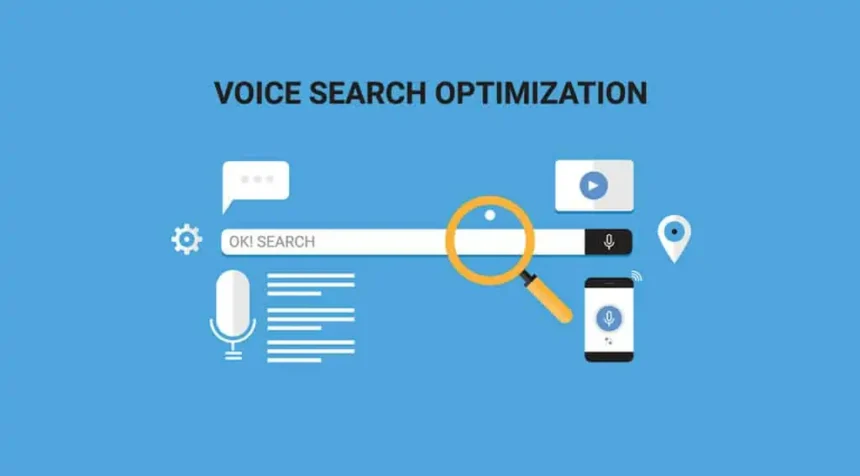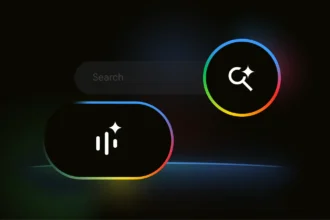Optimizing Your Website for Voice Search in Nigeria
In Nigeria, where smartphones are ubiquitous and internet access is expanding, voice search is transforming how people find information online. With tools like Google Assistant, Siri, and Alexa gaining traction, Nigerian consumers are increasingly using voice commands to search for local businesses, products, and services—think “Where can I buy jollof rice ingredients in Lagos?” or “Find a tailor near me in Abuja.” For Nigerian entrepreneurs and businesses, optimizing your website for voice search is no longer optional; it’s a competitive edge. This article explores how to make your website voice-search-ready, tailored to Nigeria’s unique digital landscape.
Why Voice Search Matters in Nigeria
Voice search is on the rise in Nigeria due to several factors:
- Mobile Dominance: Over 80% of Nigerians access the internet via smartphones, and voice search is faster than typing on small screens.
- Multilingual Queries: Nigeria’s diverse linguistic landscape (English, Pidgin, Yoruba, Igbo, Hausa) drives voice searches in local languages and accents.
- Convenience: Busy Nigerians, from Lagos commuters to rural farmers, prefer hands-free searches for quick answers.
- Growing Tech Adoption: Affordable smartphones and 5G expansion, coupled with devices like Amazon Echo (available via Jumia), are boosting voice search usage.
Optimizing for voice search helps your business capture these queries, especially for local and immediate needs.
How Voice Search Differs from Text Search
Voice search queries are:
- Conversational: Users speak naturally (e.g., “What’s the best hair salon in Ikeja?” vs. “hair salon Ikeja”).
- Question-Based: Common formats include “who,” “what,” “where,” “when,” and “how.”
- Local-Focused: Many searches include “near me” or city names like Lagos, Abuja, or Port Harcourt.
- Longer: Voice queries average 4–10 words, compared to 2–3 for text searches.
To rank for voice search, your website must prioritize natural language, local relevance, and quick answers.
Strategies to Optimize Your Website for Voice Search in Nigeria
1. Use Conversational Keywords and Phrases
Nigerians use voice search in everyday language, including Pidgin and local slang. Optimize for long-tail, conversational keywords:
- Research Local Queries: Use tools like Google Keyword Planner or AnswerThePublic to find phrases like “how to make egusi soup fast” or “where to fix phone in Lagos.”
- Incorporate Pidgin and Local Terms: Include phrases like “chop,” “jollof,” or “amala joint near me” to match how Nigerians speak.
- Create FAQ Pages: Build pages answering common questions, e.g., “What’s the cheapest data plan in Nigeria?” for a tech blog.
Example: A Lagos restaurant could optimize a blog post for “best place to eat pounded yam in Lagos” to capture voice searches.
2. Focus on Local SEO
Voice searches often have local intent, especially in Nigeria, where “near me” queries are common. To rank:
- Claim Your Google Business Profile: Set up and verify your profile with accurate details (address, phone, hours). Add Nigerian-specific details like “Lagos Island” or “Wuse, Abuja.”
- Use Local Keywords: Include city or neighborhood names in your content, meta tags, and URLs (e.g., “tailor-in-ikeja”).
- Add Schema Markup: Use structured data (e.g., LocalBusiness schema) to help search engines understand your location and services.
Example: A Port Harcourt bakery could optimize for “fresh bread near me” by listing their address and adding schema markup to their site.
3. Optimize for Featured Snippets
Voice assistants often pull answers from Google’s featured snippets (position zero). To appear:
- Answer Questions Directly: Create concise, 40–60-word answers to common questions at the top of your blog posts.
- Use Headers: Structure content with H2/H3 tags for questions like “How to start a POS business in Nigeria?”
- Format for Clarity: Use bullet points, tables, or numbered lists for quick, scannable answers.
Example: A tech retailer could write a post with a section answering “What’s the price of iPhone 16 in Nigeria?” in a clear paragraph to win the snippet.
4. Improve Website Speed and Mobile Experience
Voice searches are predominantly mobile, and Nigerians expect fast, seamless experiences:
- Boost Page Speed: Use tools like Google PageSpeed Insights to optimize images, minify code, and reduce load times. Aim for under 3 seconds.
- Mobile-Friendly Design: Ensure your site is responsive, with large buttons and readable text. Test with Google’s Mobile-Friendly Test.
- Secure Your Site: Use HTTPS to build trust and improve rankings.
Example: A Nigerian fashion store could compress product images and use a lightweight WordPress theme to ensure fast loading on mobile.
5. Support Multilingual and Local Accents
Nigeria’s linguistic diversity means voice searches may occur in English, Pidgin, or local languages. To optimize:
- Include Local Phrases: Add Yoruba, Igbo, or Hausa keywords where relevant (e.g., “egusi” or “amala” for food blogs).
- Test with Local Accents: Ensure your content aligns with how Nigerians pronounce terms, as voice assistants are improving accent recognition.
- Use Simple Language: Avoid jargon to match the conversational tone of voice queries.
Example: A food delivery service could optimize for “where to buy isi ewu in Enugu” to capture Igbo-speaking users.
6. Create Voice-Friendly Content
Voice search favors content that sounds natural and answers questions directly:
- Blog Posts: Write in a conversational tone, as if speaking to a friend. For example, “Looking for the best suya spot in Abuja? Here’s my top pick…”
- Video and Audio: Create YouTube videos or podcasts with transcripts optimized for voice queries, as Google indexes spoken content.
- Local Stories: Share relatable Nigerian content, like “How to Cook Jollof Rice for a Party,” to resonate with local audiences.
Example: A travel blogger could create a video titled “Best Hotels in Lagos for Under ₦20,000,” optimized for “cheap hotels in Lagos voice search.”
7. Leverage Analytics and Tools
Track and refine your voice search strategy:
- Google Search Console: Monitor which queries drive traffic and identify voice-friendly terms.
- AnswerThePublic: Find question-based keywords popular in Nigeria.
- SEMrush or Ahrefs: Analyze competitors’ voice search rankings to uncover opportunities.
Example: A Nigerian e-commerce site could use SEMrush to find that “buy Ankara fabric online” is a trending voice query and create a dedicated product page.
Challenges in Nigeria and How to Overcome Them
- Challenge: Unreliable internet in some areas.
- Solution: Optimize for low-bandwidth users by using lightweight images and caching.
- Challenge: Limited voice assistant adoption due to cost.
- Solution: Focus on Google Assistant, widely available on Android phones used by most Nigerians.
- Challenge: Local accent misinterpretation.
- Solution: Test content with Nigerian voice search users to ensure compatibility.
Related Articles:
- How Nigerian Businesses Can Leverage Global Tech Trends (AI, Voice Search & More) for Explosive Growth
- Voice Search Optimization Tips for 2025: Mastering the Future of Search
- Originality vs. Convenience: The Brand Impact of AI-Generated Content vs. Stock Photos & Videos
Final Thoughts
Voice search is reshaping how Nigerians discover businesses, and optimizing your website for it can set you apart in a competitive market. By using conversational keywords, focusing on local SEO, and creating mobile-friendly, question-based content, you can capture the growing wave of voice search users. For expert help in tailoring your website for Nigeria’s digital audience, reach out to Bintus Art and Everything at www.bintusartandeverything.com. Their digital marketing expertise can ensure your brand is the first answer to every voice query. Start optimizing today, and let your website speak to Nigeria’s future!
Image source: Nozakconsulting.com





